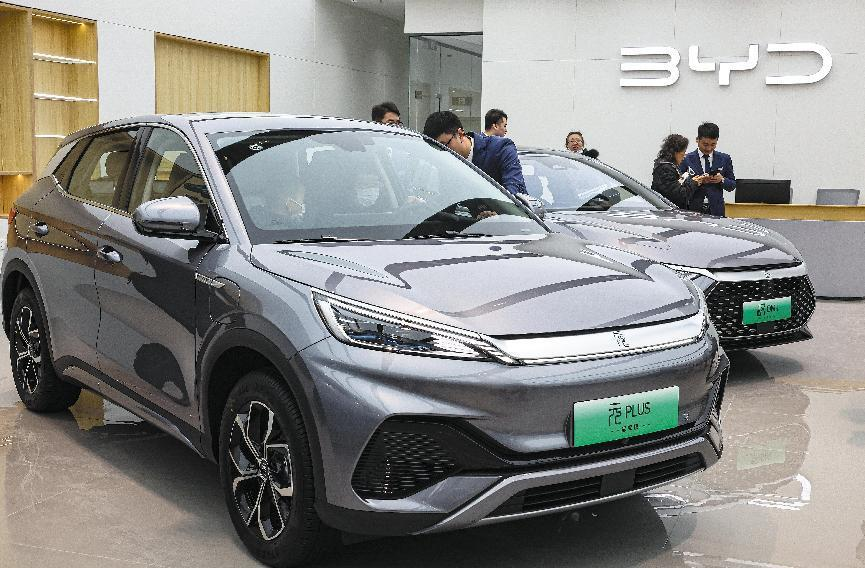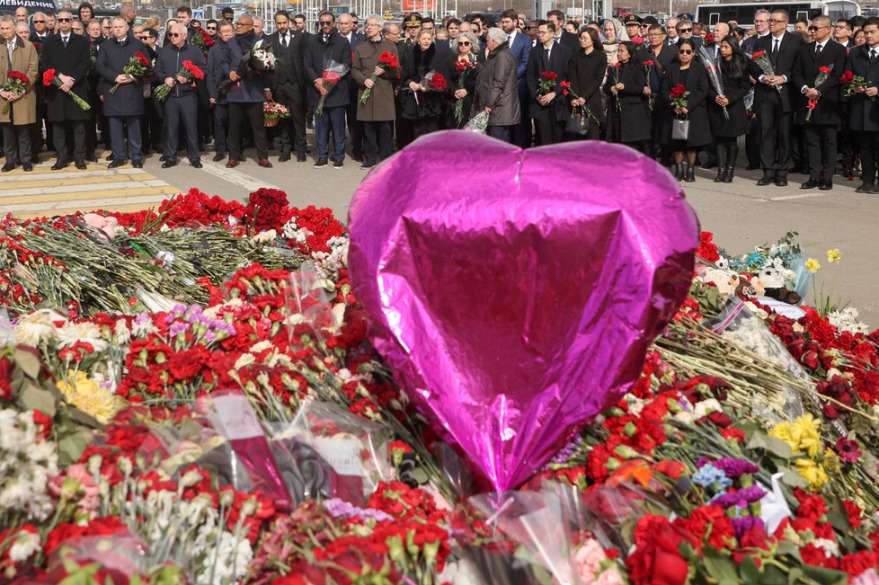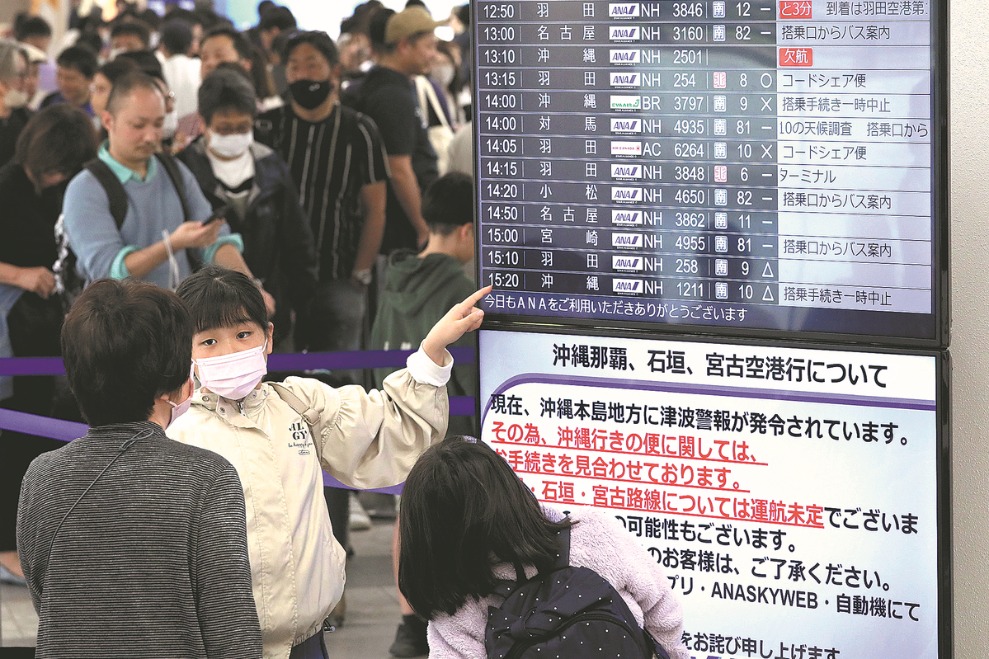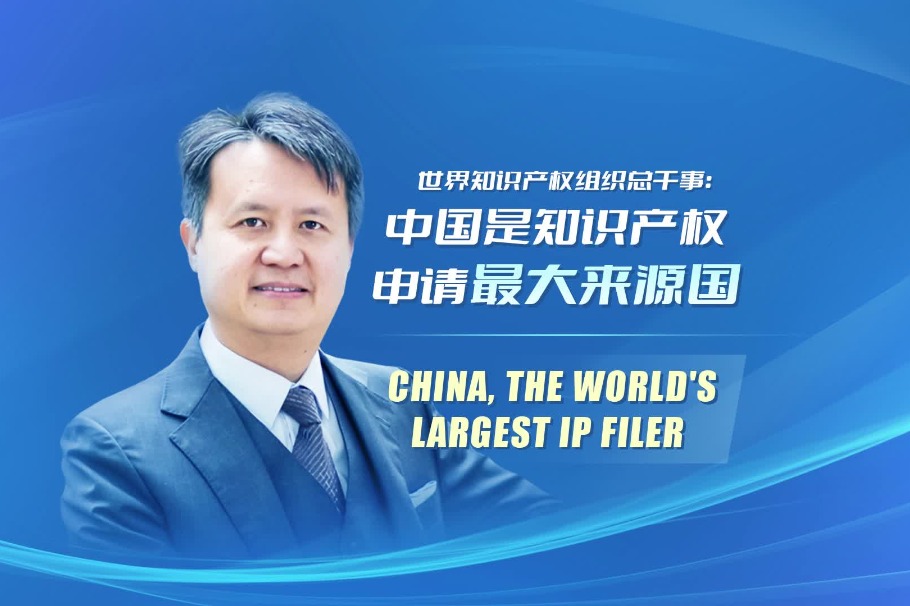NEVs charge up race in country's auto market
Domestic brands gain ground nationally as price cuts boost sales
By LI FUSHENG | China Daily | Updated: 2024-02-26 09:34

Competition in China's vehicle market this year will remain as fierce as in 2023, if not fiercer, with some major carmakers having started a new wave of price cuts right after the Spring Festival holiday, said analysts.
Warren Buffett-backed BYD fired the first salvo last Monday, launching the latest versions of two popular plug-in hybrid models, the Qin Plus and the Destroyer 05.
Their starting prices were around 20,000 yuan ($2,780) cheaper than their 2023 version and for the first time their price tags were lower than 80,000 yuan.
"Now electrified ones are cheaper than gasoline ones," said BYD, vowing to launch an all-out war in China's compact sedan market.
The segment is the largest in the country's passenger vehicle market but has long been dominated by models from international volume brands like Volkswagen's Lavida and Nissan's Sylphy.
Last year, BYD launched models priced at around 100,000 yuan, which helped it gain ground in the segment.
Also last Monday, Wuling, Changan and electric vehicle startup Hozon's Neta trimmed the prices of some of their models.
Smaller international volume brands joined the fray as well. Hyundai's Chinese joint venture Beijing Hyundai offered a new compact Elantra priced at 75,800 yuan. While SAIC-GM offered up a discount of up to 55,000 yuan for its compact Verano.
Cui Dongshu, secretary-general of the China Passenger Car Association, said China's passenger vehicle market has seen steady growth, but the price war will be "particularly fierce" in 2024, as new energy vehicle makers are revving up efforts to get a firmer footing.
He explained that as the prices of batteries, which constitute a big part of the cost of NEVs, are falling and NEV sales are rising, their makers have a bigger margin so they can afford to cut prices to woo car buyers away from gasoline vehicles.
In the meantime, gasoline makers, most of which are global volume brands, are forced to cut the prices of their vehicles as they are already losing ground to Chinese companies which have been ahead in terms of electrification, thus fueling the price wars.
"Price wars cut carmakers' profits, but they benefit the car buyers," said Cui.
Statistics from the CPCA show that Chinese marques ranked first in terms of growth in January.
Combined, they sold 1.12 million vehicles in January, up 77 percent from the same month of 2023. In comparison, mainstream international volume brands in the country saw their combined deliveries stand at 670,000 units, up 43 percent year-on-year.
The popularity of Chinese brands propelled them to seize a combined 55.1 percent of the passenger car market share in January, up 5.9 percentage points from the same month of 2023.
Analysts from JPMorgan said Chinese carmakers are expected to see their share grow further in the NEV market thanks to their portfolio of new models and the models' competitive edge compared with rivals from international brands.
There are 11 days from the end of the Spring Festival holiday to the end of February. But at least four carmakers — BYD, SAIC's electric marque IM Motors, Geely's premium brand Zeekr and Great Wall Motor — have launched or will launch models, all of which are either electric or plug-in hybrids.
Statistics from the CPCA show that 32.8 percent of new vehicles sold in January were NEVs, up 7.2 percentage points from the same month of 2023.
The figure may reach 50 percent in some months this year, said Wang Chuanfu, BYD's chairman and president, at a Guangdong government meeting last week.
Yet not all the carmakers can survive the fierce competition. On the first working day after the Spring Festival holiday, which ended on Feb 17, Shanghai-based EV startup Human Horizons stopped vehicle production because of financial difficulties.
It has three models in the market but their combined total sales stand at less than 20,000 units since its first model HiPhi X hit the market in May 2021. It is the first NEV maker that has suspended operations this year, following others that fell into trouble last year, including WM Motor and Aiways.
But China's NEV market as a whole is nevertheless booming. Last year, sales of electric and plug-in hybrid passenger vehicles totaled 8.88 million units, according to statistics from the CPCA. They are expected to grow to over 11 million units this year, said the association.
























